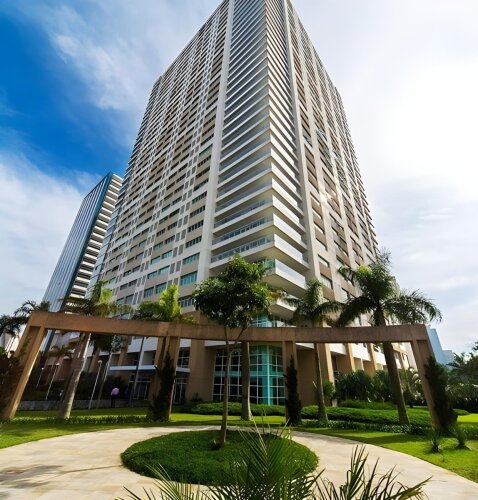Best Collaborative Law Lawyers in São Bernardo do Campo
Share your needs with us, get contacted by law firms.
Free. Takes 2 min.
Free Guide to Hiring a Family Lawyer
List of the best lawyers in São Bernardo do Campo, Brazil

About Collaborative Law in São Bernardo do Campo, Brazil
Collaborative Law is an innovative approach to dispute resolution focusing on cooperation and open communication between all parties involved. In São Bernardo do Campo, Brazil, this method is gaining recognition as a practical alternative to the traditional court process, especially in family law cases such as divorce, child custody, and division of assets. Collaborative Law encourages negotiation and mutual agreement without litigation, promoting a less adversarial and more harmonious resolution of conflicts.
Why You May Need a Lawyer
Collaborative Law is most effective when each party has legal advice to ensure their rights are protected and agreements are fair. Common situations where legal help is needed include:
- Separation or divorce negotiations
- Child custody and visitation arrangements
- Division of shared property and assets
- Alimony or child support agreements
- Business partnership dissolutions
- Inheritance and succession planning disputes
- Complex family business negotiations
Even though Collaborative Law aims for cooperation, having a specially trained lawyer ensures the legal validity of any agreements and protects your interests.
Local Laws Overview
In São Bernardo do Campo, Collaborative Law is informed by both federal Brazilian law and state-specific legal practices. While Collaborative Law is not mandated by Brazilian statute, it aligns with principles laid out in the Brazilian Civil Procedure Code, which promotes mediation, conciliation, and other consensual dispute resolution methods. Local family courts increasingly accept and encourage collaborative solutions, as these are generally less burdensome for all parties and the judicial system.
Key aspects relevant to Collaborative Law in São Bernardo do Campo include:
- The Brazilian Civil Procedure Code prioritizes out-of-court settlements and mediation.
- Agreements reached through Collaborative Law can be formalized and submitted to the court for homologation, giving them legal effect.
- Participation agreements are often used, where all parties commit not to litigate and to disclose all relevant information transparently.
- The confidentiality of negotiations is respected by local courts, enhancing trust in the process.
Frequently Asked Questions
What is Collaborative Law?
Collaborative Law is a process where parties, assisted by their own lawyers, work together to resolve disputes amicably outside of court through open communication and negotiation.
How is Collaborative Law different from mediation?
While both methods aim for cooperative solutions, in Collaborative Law, each party has a specially trained lawyer representing their interests, whereas mediation typically involves a neutral mediator without specific advocacy for either side.
Is Collaborative Law recognized by courts in São Bernardo do Campo?
Yes, local courts recognize agreements reached through Collaborative Law, and these can be formalized into legally binding documents.
Can Collaborative Law be used for matters outside family law?
While Collaborative Law is most common in family law, it can also be used in business disputes, succession issues, and other civil matters where parties wish to avoid litigation.
What happens if an agreement cannot be reached?
If parties do not reach an agreement, they are free to pursue litigation, but the collaborative lawyers must withdraw from the case, and new legal representation will be required for court proceedings.
Are Collaborative Law agreements enforceable?
Yes, once an agreement is submitted to and homologated by the court, it becomes legally binding and enforceable under local law.
How long does the Collaborative Law process take?
The timeline varies but is generally faster than traditional litigation. The process depends on the complexity of the issues and the willingness of parties to cooperate.
Is Collaborative Law confidential?
Yes, discussions and documents prepared for the collaborative process are confidential and usually cannot be used in later litigation if the process fails.
What are the benefits of Collaborative Law?
Benefits include reduced stress, lower costs, more control over outcomes, confidentiality, and preservation of relationships, especially important in family disputes.
How do I find a qualified Collaborative Law lawyer in São Bernardo do Campo?
Look for lawyers with specific training or certification in Collaborative Law, ideally those who are members of related professional associations or local bar groups focused on alternative dispute resolution.
Additional Resources
For those seeking more information or support related to Collaborative Law in São Bernardo do Campo, the following organizations and resources may be helpful:
- OAB São Bernardo do Campo (the local branch of the Brazilian Bar Association) offers directories of qualified lawyers specializing in collaborative and family law.
- Local family courts can provide guidance on how to formalize collaborative agreements.
- Community mediation centers may offer information about alternative dispute resolution services.
- The Instituto Brasileiro de Práticas Colaborativas promotes training, events, and resources related to Collaborative Law in Brazil.
Next Steps
If you believe Collaborative Law might be the right fit for your situation, start by consulting with a qualified Collaborative Law lawyer in São Bernardo do Campo. Gather any relevant documents and information regarding your dispute before your initial meeting. Discuss your goals, concerns, and expectations openly. Your lawyer can explain the process in detail, help establish a participation agreement, and guide you through negotiations. If agreements are reached, your lawyer will ensure they are properly drafted and submitted for court homologation if needed. Acting promptly helps preserve options and sets the stage for a more constructive resolution.
Lawzana helps you find the best lawyers and law firms in São Bernardo do Campo through a curated and pre-screened list of qualified legal professionals. Our platform offers rankings and detailed profiles of attorneys and law firms, allowing you to compare based on practice areas, including Collaborative Law, experience, and client feedback.
Each profile includes a description of the firm's areas of practice, client reviews, team members and partners, year of establishment, spoken languages, office locations, contact information, social media presence, and any published articles or resources. Most firms on our platform speak English and are experienced in both local and international legal matters.
Get a quote from top-rated law firms in São Bernardo do Campo, Brazil — quickly, securely, and without unnecessary hassle.
Disclaimer:
The information provided on this page is for general informational purposes only and does not constitute legal advice. While we strive to ensure the accuracy and relevance of the content, legal information may change over time, and interpretations of the law can vary. You should always consult with a qualified legal professional for advice specific to your situation.
We disclaim all liability for actions taken or not taken based on the content of this page. If you believe any information is incorrect or outdated, please contact us, and we will review and update it where appropriate.








